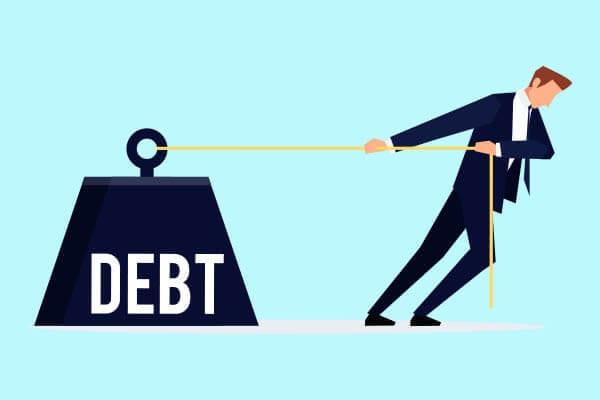Hey there, savvy budgeters and mindful thinkers! If you’ve ever felt the sting of a drained bank account or the weight of financial stress gnawing at your peace of mind, you’re not alone. In a world where both our wallets and our well-being can be stretched thin, finding that sweet spot between managing money and maintaining mental health is more crucial than ever. Welcome to “.” This article is your go-to guide for navigating the tricky waters of finances and feelings, offering practical tips and insights to help you thrive both economically and emotionally. So grab a cup of your favorite beverage, settle in, and let’s dive into the art of achieving financial stability and mental serenity.
Mastering Your Monthly Expenses Without Stress
One of the keys to managing your monthly expenses without the accompanying stress is to have a plan that’s both flexible and realistic. Start by creating a budget that covers all your essentials like rent, utilities, groceries, and transportation. Don’t forget to include a little room for fun – after all, life’s about balance! To make things simpler, break your expenses into categories and use apps or spreadsheets to track them. Here’s a quick guide:
- Essentials: Rent, Utilities, Groceries
- Discretionary: Dining Out, Entertainment
- Savings: Emergency Fund, Retirement
- Debt Repayment: Credit Card, Loans
An essential part of reducing stress related to finances is to regularly review and adjust your budget. It’s highly beneficial to set aside a specific time each week to check your spending and make necessary tweaks. This helps in preventing overspending and ensures that you are staying aligned with your financial goals. To help you visualize, here’s a sample monthly budget:
| Category | Budgeted | Actual |
|---|---|---|
| Rent | $1,000 | $1,000 |
| Groceries | $300 | $280 |
| Dining Out | $150 | $160 |
| Savings | $200 | $200 |

Mindful Spending: Keeping Your Mental Health in Check
We often don’t realize how closely our spending habits are connected to our mental well-being. When we overspend or feel out of control with our finances, it can lead to stress and anxiety. To help manage this, try being more conscious with your spending by focusing on needs rather than wants. A few tips to consider:
- Set a Budget: Allocate funds for essentials like housing, groceries, and transportation before considering discretionary spending.
- Track Expenses: Regularly monitor where your money goes. Apps or a simple spreadsheet can help you stay on top of your financial situation.
- Plan for the Future: Setting aside even a small amount each month for savings can ease future financial pressures.
To gain better control over your spending and improve your mental health, consider implementing small, manageable changes. For instance, avoid impulse buys by waiting 24 hours before making non-essential purchases. This short wait can help you determine if the item is a genuine need or just a momentary desire. Additionally, involve your family or loved ones in your financial planning. Teaming up can make budgeting less daunting and more attainable.
| Strategy | Benefit |
|---|---|
| Create a weekly spending plan | Keeps spending under control |
| Avoid credit when possible | Reduces debt-related stress |
| Hold family financial meetings | Encourages open communication |

Tackling Debt While Staying Positive
Dealing with debt can feel like a heavy burden, but you can manage it effectively while also keeping your spirits high. Start by creating a balanced budget that lets you see where your money goes and find ways to save. Set realistic goals for paying off debt, and celebrate small wins along the way. To make budgeting simpler, use tools like budgeting apps or spreadsheets to track expenses.
- Create a To-Do List: Break your repayment plan into manageable tasks.
- Stay Positive: Find a healthy outlet for stress, such as exercising or hobbies.
- Seek Support: Talk to friends or family for encouragement.
Maintaining a positive attitude might seem tough, but it makes a significant difference. Focus on self-care and mindfulness practices to keep your mental health in check. Use techniques like deep breathing or meditation to reduce stress when thinking about debt. Don’t hesitate to seek professional help if needed, whether it’s a financial advisor or a therapist.
| Small Wins | Payout Strategy |
| Pay off one smaller debt | Snowball Method |
| Save an extra $50 a month | Avalanche Method |

Building a Financial Safety Net for Peace of Mind
Creating a financial cushion can bring a sense of calm in uncertain times. Start by saving a small amount each month. Set realistic goals that won’t add extra stress to your life. Here are some quick tips to get started:
- Automate your savings so you don’t have to think about it.
- Create a budget that includes a “rainy day” fund.
- Cut unnecessary expenses, even if it’s just a few dollars here and there.
| Savings Goal | Monthly Amount |
|---|---|
| Emergency Fund | $50 |
| Vacation Fund | $20 |
| Unexpected Expenses | $30 |
While focusing on your financial health, don’t forget to take care of your mental well-being. Both aspects are deeply connected. Set aside time for activities that reduce stress, like hobbies or exercise. You can also:
- Talk to a friend or family member about your concerns.
- Practice mindfulness or meditation to stay grounded.
- Seek professional help if needed; it’s okay to ask for support.
Q&A
### Q&A: Balancing Budgets and Emotions
Q: What’s the main focus of balancing budgets and emotions?
A: The main focus is to find a healthy balance between managing your money and taking care of your mental well-being. It’s about understanding that financial health and mental health are interconnected.
Q: Why is it important to balance these two aspects?
A: When one area is out of balance, it can negatively affect the other. Financial stress can lead to mental health issues such as anxiety or depression, and poor mental health can make managing finances more difficult. Balance is key to overall well-being.
Q: Are there any simple strategies to start with?
A: Yes, definitely! Start by creating a basic budget to keep track of your income and expenses. Also, take time for self-care activities that reduce stress, like exercise, hobbies, or talking to friends.
Q: How can setting realistic goals help?
A: Setting realistic financial goals can reduce stress because it gives you a clear, achievable target to work toward. It also gives you a sense of accomplishment as you meet these goals, which can boost your mental health.
Q: How does automating finances contribute to balance?
A: Automating things like bill payments and savings can reduce the mental burden of remembering due dates and can help prevent late fees or missed payments. This can lead to less financial stress and more peace of mind.
Q: Any tips for dealing with financial setbacks emotionally?
A: It’s important to acknowledge your feelings and understand that financial setbacks are a part of life. Don’t be too hard on yourself. Talking to a trusted friend or a financial advisor can also provide support and perspective.
Q: What role does professional help play in this balancing act?
A: Seeking help from financial advisors or mental health professionals can provide expert guidance and support. They can offer strategies tailored to your situation, helping you maintain or restore balance in both areas.
Q: How often should you review your budget and mental health?
A: Regular check-ins are crucial. Monthly financial reviews and weekly check-ins on your mental health can help you stay on track and make adjustments as needed.
Q: What’s a practical step for someone just starting?
A: Start with tracking your spending for a month to identify where your money goes. Simultaneously, keep a simple journal to write down how you feel at different times of the day. This awareness is the first step toward balance.
Q: Any final thoughts?
A: Remember, it’s a journey toward balance, not perfection. Small, consistent efforts can lead to significant improvements in both your financial and mental health over time. Don’t hesitate to reach out for help when needed—it’s a sign of strength, not weakness.
Final Thoughts
As we wrap up our exploration of balancing budgets and emotions, it’s clear that juggling financial health alongside mental well-being isn’t just a nice-to-have—it’s essential. Remember, your journey towards a balanced life doesn’t have to be perfect. It’s all about finding what works best for you, one step at a time. Whether you’re tracking expenses more mindfully or carving out moments for self-care, every little effort counts. Keep these strategies in your back pocket, and don’t hesitate to reach out for support when you need it. You’ve got this!


